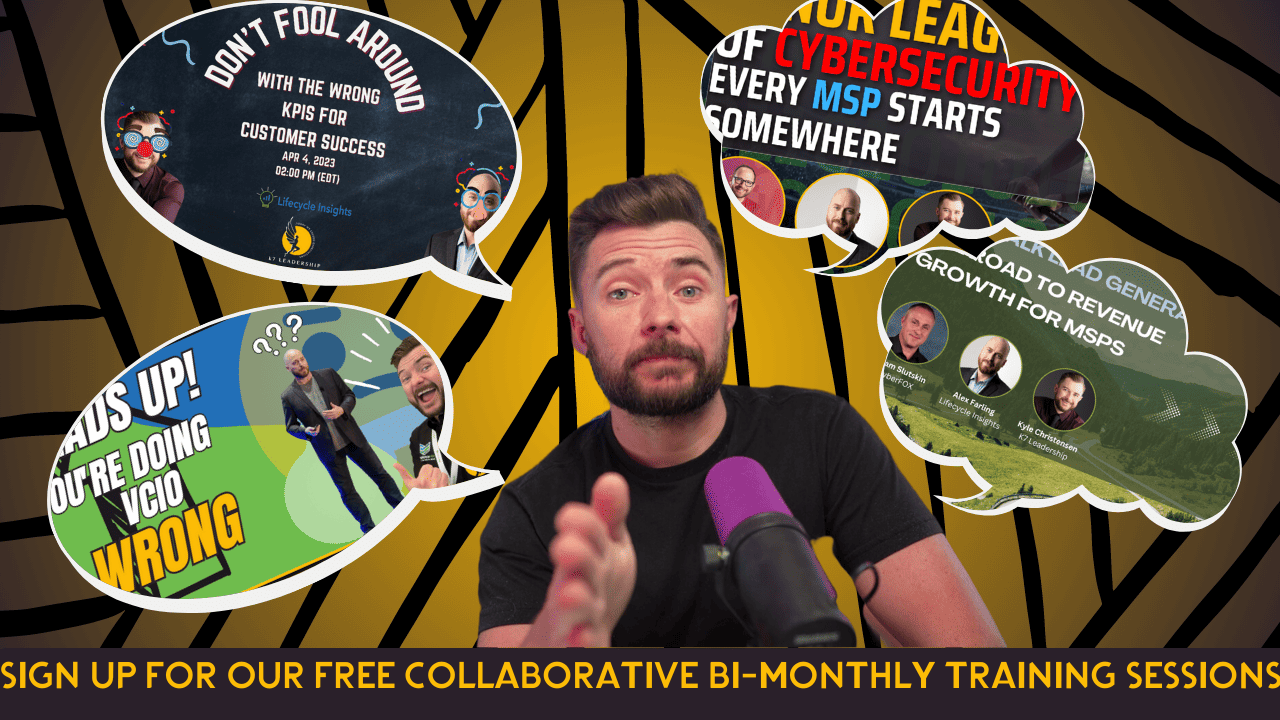
When you first start your business, your energy, skills, and enthusiasm will be what drives your idea to become a successful business. As your business grows and evolves, the same characteristics that made it successful in the past could now become the cause of its failure. To prevent this, you must take an adaptive approach to growing your business and establish a foundation of flexibility. This means taking the time to reflect on what has worked in the past and making adjustments as needed for future success. To keep your business agile and ahead of competitors, it's important to learn from experience and be open to change. There is no universal solution for scaling a business, but by devising a bespoke strategy, savvy entrepreneurs can effectively pursue long-term growth and meet their specific needs. With a balanced mix of ambition and caution, you can give your business the best chance at reaching its full potential.
Dan Sullivan's approach to remaining adaptable and flexible while scaling businesses includes a strategy called 'Changing your Game'. This method stresses the significance of comprehending an organization's financials and functions. He encourages business owners to understand every process in order to have a clear grasp on how decisions affect their bottom line. He suggests breaking complicated jobs into smaller parts and giving each part to someone on the team. Use data and check progress often, so the boss can change things when needed and make good choices. This allows them to adjust their strategy as needed while ensuring that goals are reached in a timely manner. In addition, Sullivan believes in continuously learning from setbacks or mistakes in order to refine strategies and reduce risk.
That is all quite different from when you first started your business when it was all risk to create demand and cash flow.

Well, it is the abundance of time and energy that we have to ‘spend’ as entrepreneurs in the early days. We need to be able to make decisions fast, be ok with mediocrity, and pivot on a moments notice.
As your company grows, you will hire more leaders and staff who will need to establish processes, expectations, and accountability to maintain the standards that you set during the early days of your organization.
So as your company grows and matures, so will the requirements to plan and move at a pace where everyone is aligned and stays focused. Those ‘new ideas’ that you barged into your weekly leadership meeting with are now disruptive as ‘it's not part of the plan’.
Let's take a look at how we can better manage the ideas, pivots, and wants we have for our organizations as they grow. These ‘shiny objects’ are still our secret weapon, we just need to know how to better utilize this ‘shiny object syndrome’.

But let's think about those 5 ideas, they all take time to analyze execution. I commonly hear “my company moves to slow”, which is an interesting paradigm.
Like a bullet train passing you, perspective can be an odd scenario. In the early days, the world around you was moving fast and you had to run as fast as the train. But as it’s grown, you are now riding the train watching the world pass you by. But it’s in this moment, that you are still traveling at the speed you once were, you just now are a passenger. It’s this metaphor that is important because your company, as much as you think, is not moving slow, you just don’t need to move as fast as you once did.
Some of us intervene and look for ways to speed up the process, such as conducting research, seeking input from peers, studying competitors, and exploring other options. I understand that it can be frustrating when your company is managing you and despite having strong evidence, they may not prioritize allocating the necessary investment, time, and scheduling to make your vision a reality.
Essentially we are trying to fix something that may not be broken or need improvement in the first place! Howard Schultz, founder and CEO of Starbucks, once said "Success is not about being all things to all people. It's about doing one thing brilliantly and surrounding yourself with a team that supports your vision and helps you execute it with excellence." This is why managing your time and resources properly is critical when exploring multiple ideas. This is why you have a leadership team!
Now, while this is all fine, there is that one essence of an entrepreneur that, at times, feels impossible to hold back. I'll admit, in my own ventures I have been caught with my hand in the cookie jar. Richard Branson says, "Most successful entrepreneurs didn't set out to build a big company - they simply stumbled upon a problem they wanted to solve." If we look at his career, a vast empire of 'solve problems' live in his wake. His conquest from everything from music production all the way to space travel are in his portfolio. But he does it not at the expense of his one organization, but as living out the 'entrepreneurial dream' of multiple teams to 'solve problems'.
Now you may be thinking "that's great Kyle, but he is a billionaire! We all don't have the working capital to spin up a business with every new idea".
A friend of mine once told me "There are thousands of people who can take a business from 1 to 100. But only a handful that can take it from 0 to 1." (thanks Connor!) In the book E Myth revisited, Michael Gerber points out that many entrepreneurs are just practitioners wanting to share their craft. They are highly skilled, and want to monetize those skills. What they do not do, is realize that by starting an organization they are essentially 'changing careers'. They are forgoing their mastered skill to take the reins of business owner. However, what do they do to strengthen their new responsibilities? How do they remain accountable to being the 'best damn CEO' they could imagine?

"The 10,000-hour rule says that to become a world-class expert in anything, you need to invest ten thousand hours of focused practice. But not all practice is created equal: you need a feedback loop, a mentor, and a willingness to embrace the suck." - Daniel Coyle
10,000 hours... How much effort have you spent this year, last year, the last decade on being the best entrepreneur you could be? Is it like that gym membership you have? Or were you one of the brave to find ways to keep yourself accountable?
Let me know if you apply:
How many of you scored 100%? Better than 70%? How many of you are wondering 'what did I do?'

What if we ask ourselves the question, "if I were to become a better CEO, would my teams be working on my ideas before I even ask them?" also, "would I be more willing to startup a second company or invest in more team members if I were more confident in my abilities to manage my teams?"
"In every situation, you have a choice to focus on the 'how' or the 'who.' The 'how' will lead you to frustration and overwhelm. The 'who' will lead you to freedom and growth." In the book, "Who not How" by Dan Sullivan and Benjamin Hardy, they emphasize the importance of mindset when it comes to finding the right people to help with your business. By focusing on the "who," entrepreneurs can avoid getting bogged down in the details of how to achieve their goals.
All in all, what we do to expand our ideas through mature execution and properly flexing our 'entrepreneurial muscle' is critical to the success and legacy we leave behind. Feeling us frustration and dismay comes a lot at the lack of deduction our own abilities give us to fix problems. So why fight it? If your mind and abilities have hit a brick wall, don't bury your team and organization due to a lack of your own focus, stand up and seek growth. Use your resources, search for mentors, and never stop learning. As a leader the best thing you can do is have an open mind to new ideas and perspectives. There is no better way to build success than with a strong team of individuals that share the same goal.
By investing in yourself and by building a strong team around you, you can rest assured that your business will be in capable hands and ready to take on anything. The key is to stay focused, never stop learning, and don't be afraid to ask for help. With the right tools and people, you can turn any idea into a success story. Good luck!
Still need help, schedule a call to see how this 'Chief Accountability Officer' can whip you into shape and help get your organization from Good to Great.


K7 Leadership
(619) 249-8121
[email protected]
© 2022 K7 Leadership. All Rights Reserved.